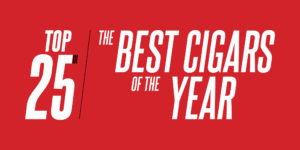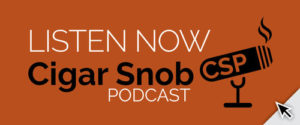Photography by: Zach Ramsey
Who’s Your Papi?
Dan Le Batard’s namesake ESPN2 talk show, Dan Le Batard is Highly Questionable (DLHQ), features interviews with some of the biggest names in sports. Among other things, he’s been writing for The Miami Herald since 1990, hosts The Dan Le Batard Show With Stugotz on Miami radio, and has long been a regular contributor to other ESPN programming. But in many ways, he’s in a peculiar position for a guy with TV and radio shows bearing his name: his sidekick’s shadow.
Dan sits at the kitchen table in what might be the most wonderfully tacky set design in television. Any Miamian who’s flipped through old family photos knows this place —with its antique fridge, tropical fruits, and a color scheme that could only ever have made sense in South Florida.
Behind Dan, a guayabera-clad, gray-haired Cuban senior is striding in slow motion (to simulate the zero-gravity conditions of outer space) as he chases a virtual chocolate chip cookie that’s floating across the room. This guy’s the biggest reason to watch Le Batard’s show. His name is Gonzalo Le Batard, but Dan and his audience know him as “Papi.”
“I came from Cuba in 1961,” said Papi. “To make a long story short, my father put me on a plane because he felt that he was going to lose me in Cuba with the Castro regime. I came to the United States. I went to school here, I worked for a year in a factory in New York,and then I went to school in Rutherford, New Jersey. Five years after I left Cuba, my family came to the United States and I was able to see them again.”
His is a unique persona in TV. But the story of his journey to the United States is a dimea dozen in Miami, where Papi and Dan still fondly recall sharing Miami Dolphins games at the Orange Bowl.
“I think that the sports moment that I enjoyed the most was when my son was about 7 or maybe 8 years old. I used to work for a company in Miami that gave me tickets when nobody else wanted them,” said Papi. “He enjoyed the games very much. We used to take sandwiches and all that. We used to see O.J. Simpson, who was the running back for the Buffalo Bills. That was my son’s favorite player.”
Certainly neither of them imagined that, decades later, they would be sideby side in a three-walled kitchen, interviewing a slew of sports heroes.
Stealing the show
“My son came to me and indicated that there was a possibility of doing a show with him. He likes to do different things. He doesn’t want to just do the same thing over and over again. So he was looking for a different angle,” Papi said.
If there’s one word that describes the show well, “different” is it. There is nothing else like it on TV. It’s silly. It’s serious. It’s irreverent and family-friendly. It’s American sports in a Miami Cuban kitchen.
“I figured that it wasn’t going to work and that it would last maybe a couple of months or so. I was really hesitant at the beginning to do it,” said Papi.
Thank goodness his desire to help his son trumped any reservations he had. Since DLHQ debuted in September 2011, Papi’s contributions (which range from reading rap lyrics to breaking tennis racquets to asking world-class athletes about their love lives) have helped make the program a truly unique spectacle.
“Wasn’t my idea. On radio, my producer, Hoch, long-time friend, knew of the telephone conversations with my dad and found them cartoonish and funny,” wrote Dan in an email interview. “After that, my TV producer, Erik, thought it would be interesting to have my dad as an accent on the TV show, at least in part to make it more obviously Hispanic because I’m not as obviously Hispanic. And then my dad, the jerk, stole the show. Now I’m the damn accent.”
Watch even just a bit of Papi in action, and it’s easy to see why he’s a fan favorite. He’s the life of the party and a passionate sports fan. He’s new to TV, yet comfortable in his own skin. It’s largely because of him that, just a few minutes in, you start to forget that tacky kitchen’s missing its fourth wall.
Serious business
Talking to Papi Le Batard about his role on DLHQ, it’s clear he takes the fun and games very seriously. He talks about the show with the rehearsed, measured lines of a PR pro. Speaking of PR, Papi also sees the show as an opportunity to improve his son’s public image.
“I saw an opportunity to really work with him as a father and son couple, and also the possibility of giving the audience an angle of my son that they couldn’t recognize from his work in print and on the radio show. I wanted the audience to know that hewas a good guy, that he was a very caring person. Sometimes people get the wrong impression of him because of the way he writes or the way he talks on the radio.”
t’s not all about making Dan look good, though. Papi is a man with something to say, and he’s taking advantage of the fact that he’s got a platform.
“I enjoy that I get to disagree with [Dan] on his show. I don’t always agree with him. Also, I’m the voice of the fans. I was very disturbed when the national media took the stance it took against the Heat because of LeBron. I felt bad for LeBron, so I figured, ‘Whatever I want to say, I’ll say on national TV.’
“If you look at all the talking heads at ESPN, they never say anything about one of their colleagues. I don’t care. I criticize [Charles] Barkley or Skip Bayless or whoever. I enjoy that very much.”
“I criticize [Charles] Barkley or Skip Bayless or whoever. I enjoy that very much.”
In fact, Papi got his shot (and took his shots) against Barkley, who Miami Heat fans like the senior Le Batard resent for his criticisms of Miami’s “big three” (Dwyane Wade, LeBron James and Chris Bosh). In a 2011 interview, Dan let his father ask the last question of Barkley. When The Round Mound of Rebound pointed out that the Heat trio hadn’t won a title yet, Papi was quick to come back with a jab at Barkley’s ringless fingers.
Immediately after the interview, he explained to his son why he’d gone at Barkley so hard: family honor and journalistic integrity.

A word with Dan
What, if anything, have you learned about your father from having him on the show?
That he once walked into a strip club in the afternoon without knowing it was a strip club because he saw a sign outside that read ‘Free lunch.’
What are your three favorite places to go in Miami?
Mom’s beach apartment, Lincoln Road, and Soho House.
Tell me something you love about Miami that tourists might never get an appreciation for ?
How strange and colorful it is. Unique. Unlike any place I’ve been in the world.
What’s your favorite cigar?
Davidoff Aniversario No. 2
“You kept throwing him softball after softball after softball,” said Papi to a son doubled over with laughter. “I had to at least go out there and protect the Le Batard family.”
¿Sí o no?
The show is also about a community’s identity. It’s not a subtle thing, either. DLHQ is riddled with accent marks, upside-down question marks, salsa dancing, and Papi’s signature “Gracias” to end every interview. This is a patently Hispanic show. More specifically, it is patently Cuban. The older half of the Le Batard duo always wears one of the many guayaberas his wife has bought for him.
And yet, the program manages to bring its Latin identity to the fore without needing to cover Hispanic subject matter. For instance, the LeBatards often play a game they call “¿Sí o no?,” which is really just an opportunity for them to banter about whether they want to watch this or that upcoming sporting event.
“Really,” said Papi,“they took a chance, because they didn’t have to do that. They took a big chance in putting this thing on the air because the probability of failure is very large.”
That open acknowledgment of the cultural identity of the show, along with the personal touch that the father-son relationship brings, made it seemingly effortless to work in several minutes of Papi and Dan talking about the elder Le Batard’s Cuban exile experience (the video’s available on the show’s YouTube channel).
That’s the kind of thing you don’t often see in Spanish-language news media outside of Miami, let alone nationally televised English-language sports talk.
“It is hugely important to me,” wrote Dan of the opportunity to expose audiences to Cuban stories and culture. “I love being a voice for Miami and for Hispanics. All I ever wanted to be when I grew up —and I’ll tell you when I actually grow up —is a voice for my community, people and neighbors.”
It’s about a relationship
Papi’s not signing autographs for admirers… yet. According to Dan, “He’s a minor, minor celebrity who will occasionally get a free tuna sandwich from a fan.”
But the show has apparently generated polarized feedback. Both Papi and Dan are quick to note that the show’s become a love-it-or-hate-it thing. Regardless, what makes it is its playfulness. It’s the informality you can achieve in a sports talk show when everybody knows the two guys on screen are literally family. It’s the professional, edgy wit of the son and the jovial innocence of the father who just wants to help out.
“He talks the way he talks because sometimes he’s a little bit controversial,” said Papi. “But there’s also a human guy in there. And you don’t get to know that human guy if you read his columns or listen to him on the radio. You’ve got to see him on TV interacting with someone he cares about, and that’s me.”
The charm of the whole thing seems obvious, but when DLHQ got its start, people didn’t anticipate that Papi would end up playing so big a role.
“It is larger than we expected,”wrote Dan, “but I’m thrilled about that. Now we work hard to set him up and make the father-son connection the thread. The show is simple by design. It is about a relationship. Most viewers of sports know what it is to have sports handed down from father to son. But he’s what’s different about the show. There are 1,000 people like me on sports television. There is only one like him.”




